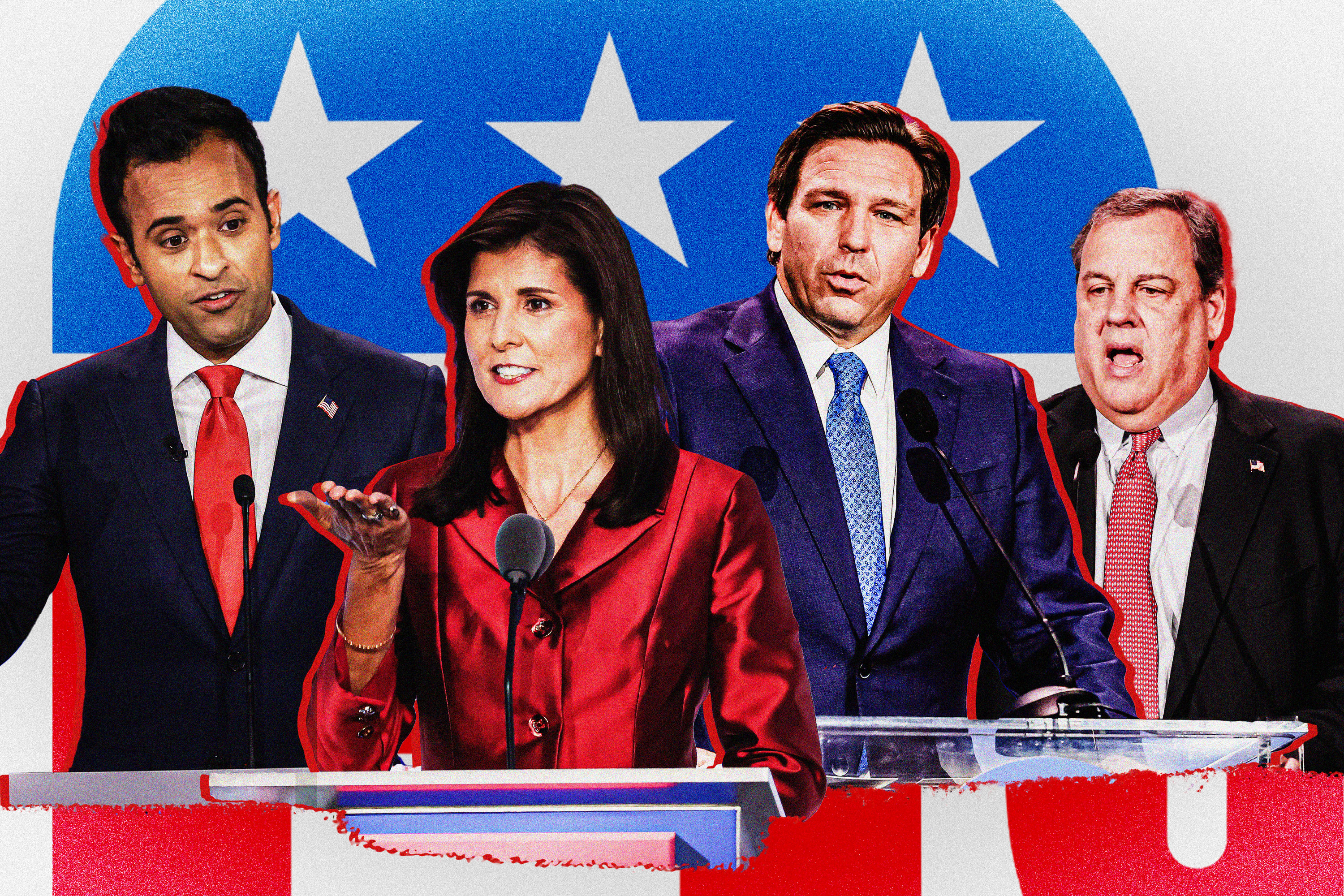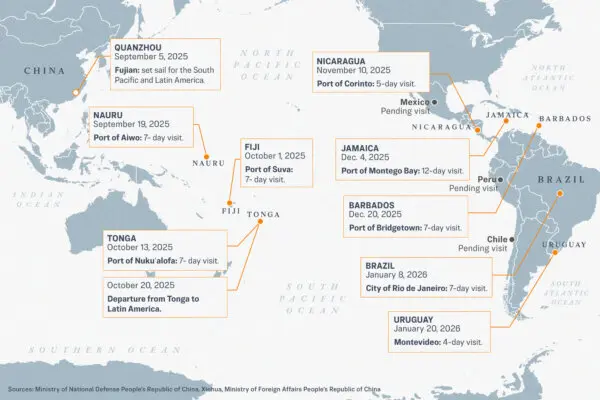With the Iowa Caucuses 39 days away, the final four Republican presidential aspirants vying for second place behind the absent yet dominant former President Donald Trump took the stage at the University of Alabama in Tuscaloosa to make their case to voters, for the fourth time this year.
The wide-ranging and often combative exchanges between Florida Gov. Ron DeSantis, former South Carolina Gov. Nikki Haley, tech entrepreneur Vivek Ramaswamy, and former New Jersey Gov. Chris Christie may not have changed many already-settled minds, but did reveal that Ms. Haley’s polling surge had rivals zeroing in on her—particularly Mr. DeSantis and Mr. Ramaswamy.










